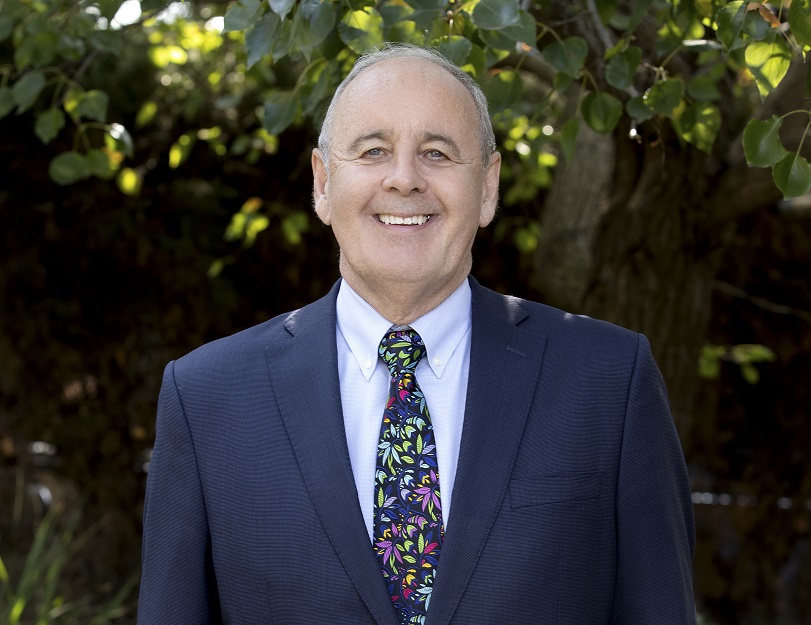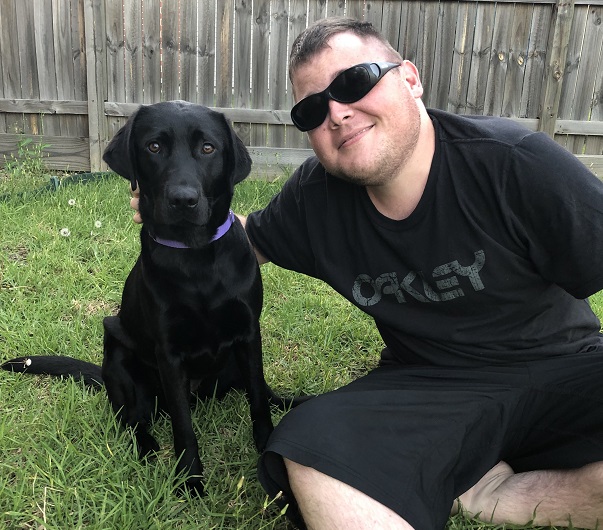Sydney man Conor Smith is no stranger to the sound of a job interviewer’s voice changing the second he tells them he is legally blind.
From feeling like a cost or a problem to a workplace to being asked if he thinks he can even do a job – Conor has spent more time searching for jobs in his life than working.
But he is not alone – thousands of blind or low vision Australians are facing discrimination and ignorance every single day in a job market that does not favour them simply down to their disability.
More than 50 percent of employers had never even considered hiring a blind or low vision person, Vision Australia’s recent survey of more than 1,000 employers across Australia found.
The survey found that many employers believed blind people would not be productive enough or thought they would be a financial burden to their business.
Ron Hooton, Vision Australia CEO, said the findings show there is no doubt people who are blind or have low vision are subject to discrimination and outdated perceptions when looking for employment.
“People who are blind or have low vision are no different to anyone else in that they want to work and make capable and committed employees and it’s extremely disappointing they’re being denied that opportunity out of hand,” Ron said.

Caption: Vision Australia CEO Ron Hooton
Conor was 12 years old when he was diagnosed with a degenerative disease that would make him lose his sight.
By the time he was 23, he was completely blind. He was at university and began looking for a job for the first time in his life.
For five years, Conor was applying for at least five different jobs a week.
From hearing the tone change of interviewees when he said he was blind to being asked ‘do you really think you’d be able to do this job? - Conor says there were so many points where he just wanted to ‘give up all together’.
Another problem Conor faced was inaccessible application processes, even in government jobs, that meant he couldn’t even properly apply for certain jobs.
Smith says he never would have applied for a job he couldn’t do and it was ‘demeaning’ and ‘disheartening’ having employers express such ignorance when asking whether he was capable.
"I found myself often asking ‘what’s the point?’ - employers made me feel like a cost or a problem and that was before I’d even go to the second round of interviews.
"I felt like I was being told again and again that I was not of value to society."
A large portion of employers answered in the survey that they thought their workers or managers would not know how to deal with a blind or low vision employee.
Yet the most common problem was the health and safety risk employers thought a blind person would pose.
Conor says people who are blind are just as capable as anyone else. From competently using a computer and having excellent communication skills, he says there needs to be far more employer awareness around the benefits of employing someone who is blind.
"We are just as good as anyone else."

Caption: Conor Smith and his dog guide Liquorice
Conor now works for Blind Citizens Australia and is loving it. But he says he doesn’t want to feel like he is pigeonholed into only working in advocacy roles simply as a result of his blindness.
While the findings of the research illustrate the multitude of challenges people who are blind or have low vision must overcome to find employment, they also show how employers are denying themselves the opportunity to find the best possible candidate for a position.
“We often hear from employers how they can’t find candidates who are qualified or committed, yet here we have evidence that employers aren’t even willing to consider a cohort of driven and talented candidates,” Ron said.
“My message to any employer or recruiter who comes across somebody who is blind or have low vision is to forget your perceptions and judge them on their merits. Consider them on the talents and diversity they could bring to the role.
Ron says the results of the survey were ‘damning’ and showed how the country was strides behind the rest of the world when it came to employer awareness and acceptance for blind and low vision people.
"We can do better than this and we need to do better than this."
The full Vision Australia/EY Sweeney research can be downloaded:










